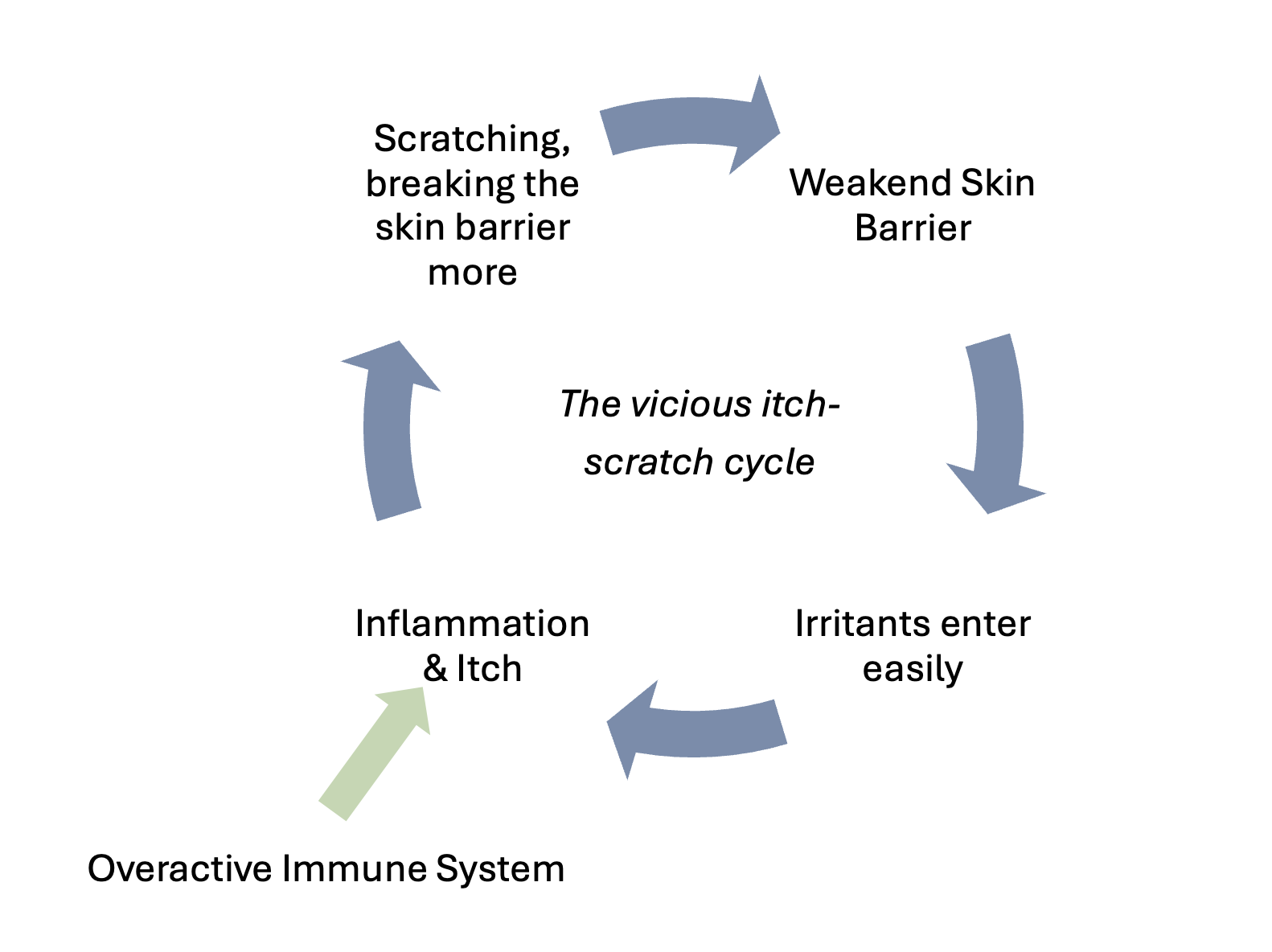Eczema isn’t just a skin condition. It’s a complex interaction between your immune system, skin barrier, and environmental triggers. Together, these factors create an inflammation-itch-scratch cycle that can be hard to get under control. Here’s what happens inside the body when eczema flares up:

1. A Weakened Skin Barrier
Healthy skin acts like a strong protective shield, keeping moisture in and harmful irritants out. Eczema weakens this barrier through a combination of genetic factors and environmental influences. As a result, skin loses moisture more easily, leading to dryness and cracks. Irritants, allergens, and bacteria can enter more easily, triggering inflammation and itching.
2. An Overactive Immune System

Eczema is an inflammatory condition, meaning the body’s immune system overreacts to irritants or allergens. Instead of responding in a controlled way, the immune system releases too many inflammatory signals. These signals cause:
- Itching (which leads to scratching, further damaging the skin).
- Swelling and redness (as the body tries to fight off perceived threats).
- A cycle of flare-ups(where each scratch makes the skin even more vulnerable).
3. The Itch-Scratch Cycle
One of the hardest parts of eczema is the constant urge to scratch. Scratching provides momentary relief, but it actually worsens eczema. It breaks the skin, making it more prone to infections. More infections mean more immune cells are activated, leading to even more inflammation. This cycle thickens the skin over time, making it rough and leathery (a condition called lichenification).
How to Break the Cycle
To break this cycle, any successful treatment strategy needs to rest on three pillars:
- heal the skin barrier;
- manage triggers and irritants;
- bring the immune system into balance.
- Ständer, S: Atopic Dermatitis. N Engl J Med 2021;384:1136-43. doi: 10.1056/NEJMra2023911
- Avena-Woods, C: Overview of Atopic Dermatitis. Am J Manag Care. 2017;23(8 Suppl):S115-S123.
- Kim, J. et al.: Pathophysiology of Atopic Dermatitis: Clinical Implications. Allergy Asthma Proc 40:84-92, 2019; doi: 10.2500/aap.2019.40.4202
- Yang, G. et al.: Skin Barrier Abnormalities and Immune Dysfunction in Atopic Dermatitis. Int. J. Mol. Sci. 2020, 21, 2867; doi:10.3390/ijms21082867


